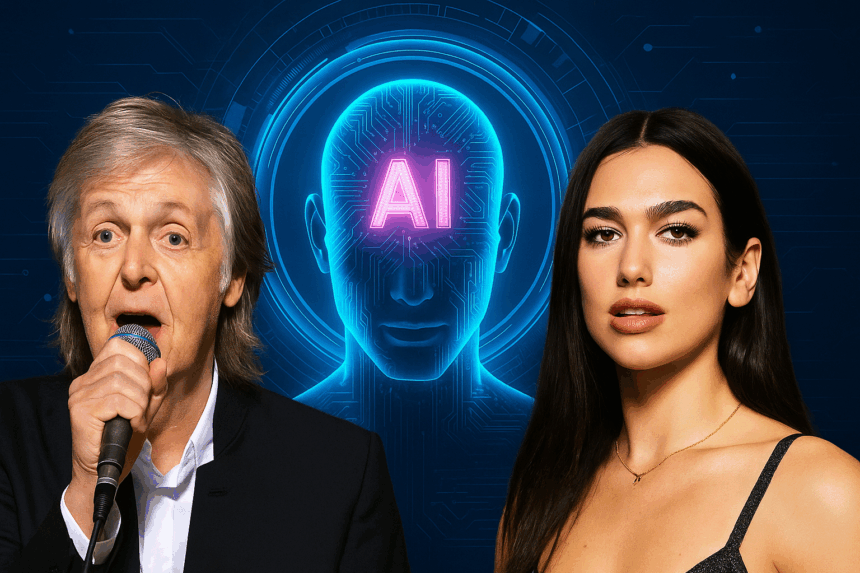Major UK creatives, including music icons Paul McCartney and Dua Lipa, along with the Royal Shakespeare Company and other leading organizations, are stepping forward to urge UK Prime Minister Keir Starmer to reconsider a controversial policy that could significantly impact the country’s creative industries. These artists are particularly concerned about proposed legal changes that would allow AI companies to access and use copyrighted works without permission, a move they argue could compromise the livelihoods of creators and Britain’s cultural influence on the global stage.
What’s Happening & Why This Matters
The UK government is debating a new bill allowing artificial intelligence firms to use copyrighted material without obtaining the creator’s consent. The government believes this will foster innovation and make it easier for AI companies to develop new tools. However, this has sparked strong opposition from the creative community, which argues that it threatens their intellectual property and undermines the value of their work.
In an open letter, over 200 notable UK artists, including Coldplay, Ian McKellen, and others, have called for stronger protections for artists’ copyrights. They express concern that this move could result in a loss of income for creators and weaken Britain’s status as a leading force in global culture. “Copyright is the lifeblood of our professions,” they emphasize, urging the government not to prioritize major tech companies’ interests over individual creators’ rights.
The letter is spearheaded by Baroness Kidron, a cross-bench peer, who has been an outspoken campaigner against the proposed changes. She and other creatives advocate for an amendment to the bill requiring AI companies to disclose which copyrighted works they have used to train their models. This would give creators more transparency and control over their work, ensuring their intellectual property is not exploited without compensation.
This issue is a major point of contention in the UK, with creatives warning that the proposal could cause irreversible damage to the country’s cultural and economic standing. The outcome of this debate will affect the livelihood of artists and the future of AI development, as it will set a precedent for how intellectual property is managed in the digital age.
TF Summary: What’s Next
As the government prepares to debate the bill, artists and cultural organizations are calling on parliamentarians across the political spectrum to support the amendment. The battle over AI and copyright highlights the ongoing tension between innovation and intellectual property protection. This conflict may mold creative industries in the UK and globally. If accepted, the amendment may establish frameworks for AI companies engaging with copyrighted material. New regulations may balance respect for creators’ rights while enabling technology to thrive.
The issue will magnify as AI-intellectual property discussions gain prominence. How the UK government addresses these concerns could influence future policies in other countries. Moreover, the outcome may forever improve (or scar) the relationship between creatives and technology.
— Text-to-Speech (TTS) provided by gspeech


